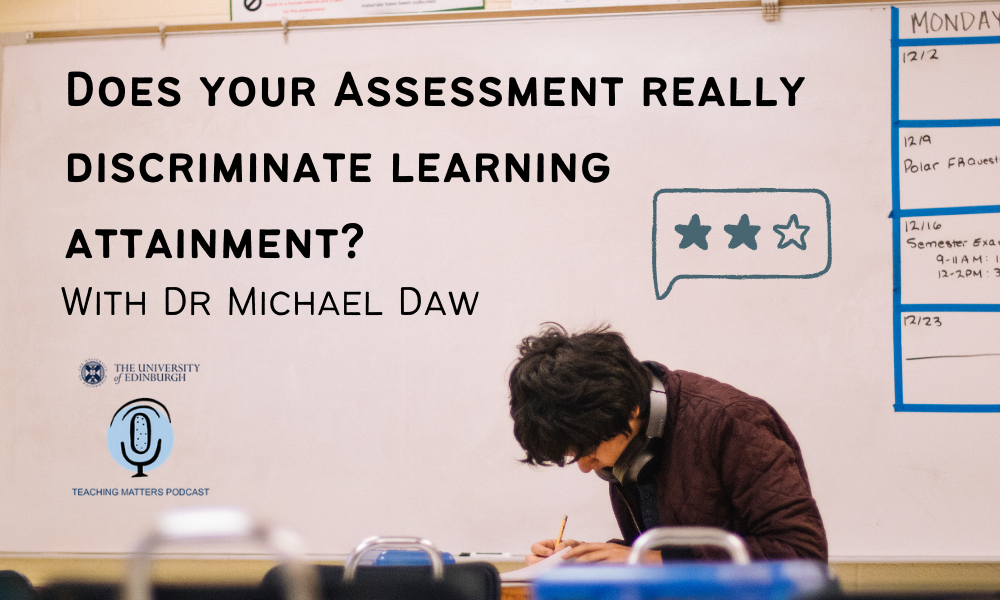 In this episode, Dr. Michael Daw, Director of Quality in the Deanery of Biomedical Sciences, introduces his analysis of marking schemes and assessment styles and offers insights into how educators can utilize this knowledge to improve assessment. This episode accompanies our July-August ‘Hot Topic’: “Lessons from the Learning and Teaching Conference 2021“.
In this episode, Dr. Michael Daw, Director of Quality in the Deanery of Biomedical Sciences, introduces his analysis of marking schemes and assessment styles and offers insights into how educators can utilize this knowledge to improve assessment. This episode accompanies our July-August ‘Hot Topic’: “Lessons from the Learning and Teaching Conference 2021“.
In the fourth episode of our Learning and Teaching Conference series, Michael Daw expands on his presentation “The unintended consequences of approaches to marking and assessment & supporting criteria-based marking”. The conversation begins with what drew Michael to this analysis and follows with his counterintuitive findings on marking scheme and assessment style outcomes. These findings seek to answer important questions, such as: Do the assessments we prepare for students allow them to fully showcase what they’ve learned? Do marking schemes affect the distribution of marks? And what kind of assessments lead to, or don’t lead to, the full range of marks?
I wanted to look for evidence and say, okay, if we look through all these different types of marking schemes that are used already used in deanery, can we see if they do actually make a difference to the range of marks that we use? So that was where I set off. I just wanted to say, look, can we correlate the range of marks and all the other different features of the grade distribution?
– Michael Daw
After detailing his findings, the conversation expands, introducing the idea of ‘marking culture’ within schools with Michael offering a few anecdotal experiences. He also speaks about contextual marking and how different styles of assessment generally achieve different outcomes, at least in regards to the range of marks. Throughout the episode, Michael demonstrates his commitment to an evidence-based approach towards changing assessment.
This conversation begs the question: does your assessment really discriminate learning attainment? And if it doesn’t, perhaps Michael’s analysis can help steer you in the right direction.
Read the blog post corresponding with Michael’s analysis.
Listen now:
Timestamps
2:02 – Episode specific introduction and Michael on what drew him to this analysis
8:30 – Michael on some of his counterintuitive findings, and why marking schemes may not affect distribution of marks as much as initially thought
15:28 – Michael on marking culture, anecdotal experiences and authentic vs non-authentic assessment
Transcript
|
 MICHAEL DAW
MICHAEL DAW
Dr Michael Daw is a Senior Lecturer and Director of Quality in the Deanery of Biomedical Sciences. He was an Edinburgh graduate in 1998 and returned in 2010 as a Research Fellow before developing an increasing interest in teaching and learning.
Produced and Edited by:
 Eric Berger
Eric Berger
Eric is a Mathematics and Statistics student at The University of Edinburgh, and a podcasting intern for Teaching Matters. Eric is passionate about university student mental health, interviewing researchers for the Student Mental Health Research Network at King’s College London, leading the University of Edinburgh’s WellComm Kings Peer Support Scheme, and conducting research on stigma for People With Mental Illnesses (PWMI). In his free time, he enjoys watching and playing sports, over-analysing hip-hop songs, podcasts, and any sort of wholesome shenanigans.


